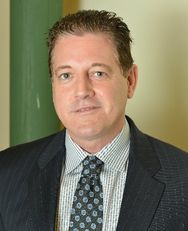After a tide of departures in the town’s police and Fire-Rescue departments, the Town Council may consider reversing cuts to pension benefits.
A council committee has asked staff members and financial advisers to look at the financial impact of dropping an unpopular “hybrid plan,” which was enacted in 2012. The Finance and Taxation Committee also will look at allowing police and firefighters to collect their pensions at a younger age.
In 2012, the council severely cut the multiplier used to determine pension payments, and required police and firefighters to wait until age 65 to collect pensions — part of a broad package of pension benefit cuts the town said was necessary to avoid a string of budget deficits and put the pension plan on a sound financial footing.
At the committee’s Nov. 19 meeting, Public Safety Director Kirk Blouin said that, in the last four years, 40 officers have left the department, and seven more are looking for jobs in other police departments. In the Fire-Rescue Department, 56 firefighter-paramedics have left since 2012, he said.
“We have experienced a hard time with recruiting and definitely high levels of attrition in the public safety departments,” Blouin told the committee, made up of council President Michael Pucillo and Councilman Richard Kleid.
More than 60 percent of all town public safety employees have less than three years of experience. “That is a problem … there are no experienced people to fall into the leadership and detective positions,” Blouin said.
After the changes were adopted, many Police Department veterans retired early to avoid having their pension benefits cut. Many of those went into the deferred retirement program, known as DROP, which enabled them to continue working for up to five years even though they were officially retired.
“In the next four to five years, the majority of those in management in the Police Department will be at the end of their five-year DROP,” Blouin said.
No longer competitive
The council’s thinking in 2012 was that other municipalities would follow Palm Beach’s lead and conclude that their pension benefit levels were not financially sustainable. But that hasn’t happened, Blouin said.
In most cases, the departing employees are getting jobs with other departments in South Florida, where the market is competitive, Blouin said.
Of all the changes made to the pension benefits, the most unpopular with public safety employees were the reduction of the multiplier and an increase in the eligibility age to collect pensions, he said.
The town has continued to offer its traditional defined benefit plan while introducing a new defined contribution plan in which the town and employees pay into individual retirement accounts.
Blouin said public safety employees simply do not care about the individual retirement accounts so they are not effective recruitment or retention tools.
The defined benefit plan has been sharply diminished by a reduction in the multiplier, by nearly two-thirds, to 1.25. The multiplier is used, along with the number of years of employment and an employee’s level of compensation at retirement, to determine the pension payment. In addition, police and firefighters, who had been eligible to draw pensions after 20 years of employment, now can’t begin collecting them until age 65.
The multiplier remains at 3.0 for the Florida Retirement System, which includes 350 out of the state’s 420 municipalities. Other municipalities have maintained multipliers much higher than Palm Beach’s, Blouin said. For example, Boca Raton’s multiplier is 3.5.
‘Something needs to be done’
“It was a little too extreme,” former Mayor Jack McDonald said of the pension cuts. He has repeatedly called on the council to order a study of the benefits received by other municipal employees in the local job market.
But Pucillo said he doesn’t think the town needs a compensation study to tell it that its pension benefits aren’t competitive when that is already obvious.
“I don’t see this council recommending that we ever go back to where we were before with the pensions,” Pucillo said. But “there is agreement now that something needs to be done.”
Pucillo suggested the town consider dropping the defined contribution plan for the public safety employees. Town funds used to match employee contributions in the retirement accounts could instead offset the cost of boosting the multiplier up to 2.5 and reducing the pension collection age for public safety workers to age 60.
The town matches the retirement accounts dollar-for-dollar up to 4 percent, and the council has in some years boosted the town’s share to 8 percent, but it is not obligated to do so.
Pucillo also said, however, that the town may have to increase mandatory payroll deductions that the police and firefighters pay into the system. Currently, all non-union town employees pay a minimum of 2.47 percent into the invested accounts and 4 percent into the defined contribution plan. The union firefighter/paramedics pay 4.82 percent into the invested accounts and 2 percent into the defined contribution plan, with a 2 percent match from the town.
Blouin said the town’s police and firefighters pay significantly less than their counterparts in many other municipalities in South Florida.
Bill Hanes, the town’s pension plan administrator, and Brad Armstrong, its actuary, will return with cost estimates for the suggested changes at the committee’s next meeting, which will be scheduled following the council’s meetings on Dec. 8 and Dec. 9.
Any decisions the committee makes are recommendations to the full council, which has the final say.


